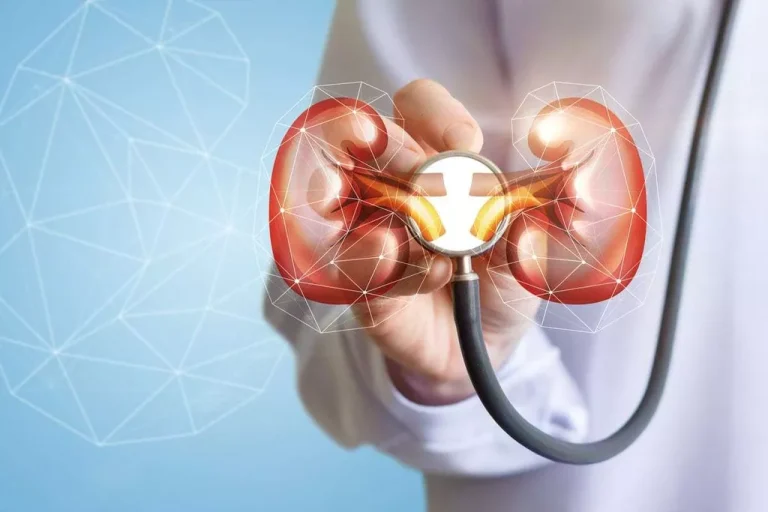Sober living
Alcohol Misuse and Kidney Injury: Epidemiological Evidence and Potential Mechanisms PMC
In addition, Das et al. reported that alcohol consumption impairs the ability of CAT to catalyze the decomposition of H2O2 in the kidneys [41]. This subsequently promotes the conversion of H2O2 to the more reactive hydroxyl radicals, which cause damage in antioxidant capacities and mitochondria in renal cells [34,42,43]. Samadi et al. also suggested that ethanol induces depression of nephrin and podocin in podocytes, which contributes to renal injury and proteinuria and is mediated by oxidative stress [44].
- Other research also reported that 5 weeks of ethanol exposure can improve CAT activities in the renal cortex in rats.
- Alcohol consumption also is known to induce a state of low blood sugar (i.e., hypoglycemia) and activate the portion of the nervous system that coordinates the body’s response to stress (i.e., the sympathetic nervous system).
Kidney Structure and Function
Kidneys act as filters, removing harmful toxins from your bloodstream. We used data from the National Health Interview Survey (NHIS) in 2001, 2005, and 2009; the National Health Insurance research database; and, the National Deaths Dataset. All data were composed, organized, and explored in the Health and Welfare Data Science Center of Ministry of Health and Welfare in Taiwan.
Causes of Low Phosphate Levels in Alcoholics
- First, many studies are based on patients’ routine health checkups, as annual health examinations do not allow researchers to evaluate any fluctuation in serum creatinine and other biomarkers.
- The amounts of these substances must be held within very narrow limits, regardless of the large variations possible in their intake or loss.
- The kidney tubules play an important role in keeping the body’s water and electrolyte levels in equilibrium.
- Moreover, alcohol-induced renal tubular dysfunction is also reflected in vitamin reabsorption disorders.
Therefore, we need more evidence to determine whether abstinence can relieve and heal the kidney damage caused by long-term alcohol consumption and the effects of alcohol abstinence on the prognosis of patients with CKD. One of the reasons for this sex difference might how does alcohol affect the kidneys be the different pharmacokinetics of ethyl alcohol between men and women. Since women, with a lower proportion of body water, have a smaller distribution volume for alcohol, they are more likely to have a higher concentration of alcohol in the blood than men.
Limitations of Existing Studies
Future research will hopefully explore these hypotheses to provide a better understanding of alcoholic kidney injury. This article highlights the effects of other organs on kidney and renal function; however, it should be noted that alcoholic kidney injury itself may have negative metabolic consequences. One such complication is impaired vitamin D metabolism (Shankar et al. 2008), which may influence the function of several other organs, creating a vicious cycle. In turn, heavy alcohol consumption is implicated in the development of these cardiac diseases, with chronic, heavy drinkers at higher risk than those who consume small to moderate amounts of alcohol. Binge drinking (usually more than four to five drinks within two hours) can raise a person’s blood alcohol to dangerous levels. This can cause a sudden drop in kidney function known as “acute kidney injury.” When this happens, dialysis is needed until a person’s kidney function returns to normal.
Concerned About Your Kidney Health?
Often it occurs simultaneously with phosphate deficiencies, also frequently encountered among alcoholic patients. Hypomagnesemia responds readily to magnesium supplementation treatment, however. Try swapping out alcoholic drinks for alternative beverages such as juices and teas.
These processes can take years, with many ups and downs in the journey. Abstaining from alcohol is a difficult challenge on its own, but for a person who is struggling with kidney problems, there are additional health considerations to take into account. With the passage of time and positive changes, the kidneys can return to normal, optimal functioning. Healthy kidneys ensure that such proteins stay out of a normal urine flow; kidneys suffering from chronic alcohol abuse, on the other hand, cannot stop proteins (like albumin) from “leaking” into urine. The National Kidney Foundation warns that albuminuria can be an early sign of kidney disease, which will require nephrology treatment.







